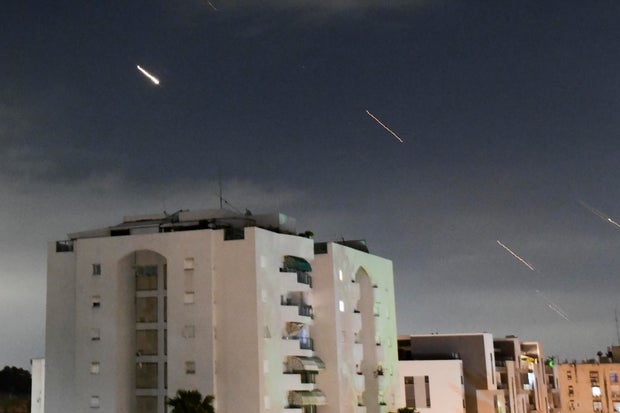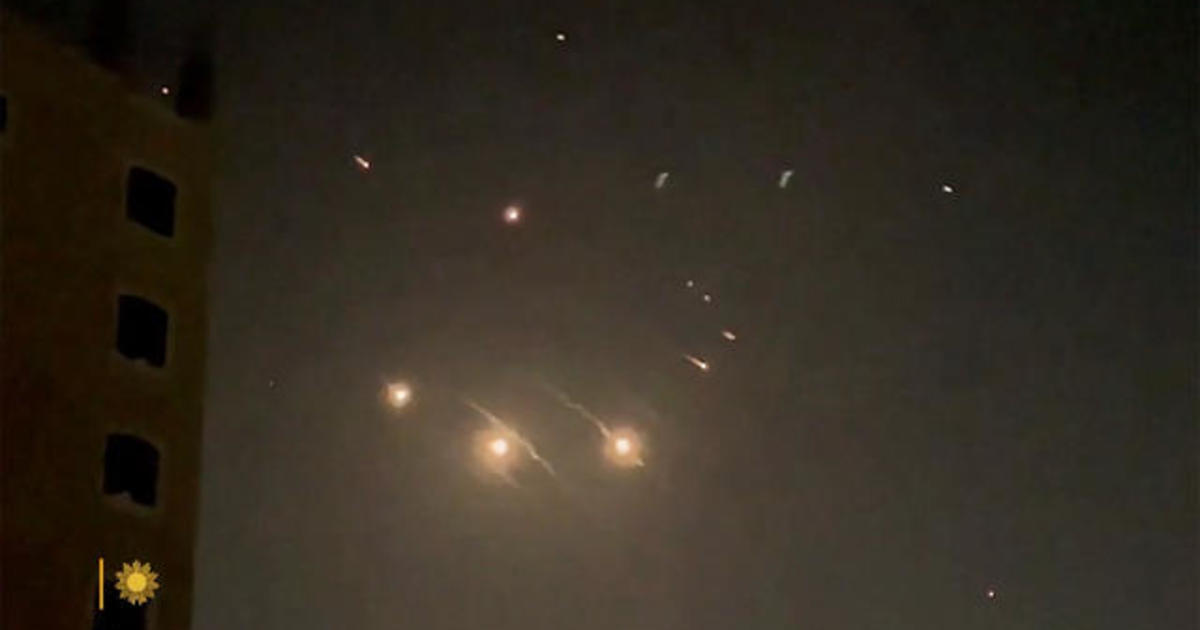/ CBS News
National security expert on Israel, Iran
Iran launched an unprecedented retaliatory attack on Israel over the weekend that included hundreds of missiles and drones launched primarily from its own soil, but also by Iran-backed groups in several other countries. Virtually everything fired at Israel was intercepted before entering the country's territory, according to the Israel Defense Forces, which reported "very little damage" from the attack.
A 7-year-old girl who was severely injured by shrapnel was the only known casualty in the attack. The child, from a Bedouin village in Israel's southern Negev desert, was still fighting for her life on Monday.
Iran's assault was designed to saturate Israeli and U.S. air defenses with drones and cruise missiles and clear the way for Iran's ballistic missiles, two U.S. officials told CBS News national security correspondent David Martin. It took several hours for the drones and missiles to travel toward Israel, and alerts began to sound across the country at about 2 a.m. local time on Sunday (7p.m. Eastern on Saturday).
The IDF said 170 drones were fired at Israel from Iran, and Israeli Air Force jets shot down dozens of them. U.S. aircraft operating from bases in Saudi Arabia and Jordan shot down between 70 and 80 of the drones, Martin reported.

The IDF said none of the 170 drones launched by Iran crossed into Israeli territory, nor did any of the more than 30 cruise missiles fired by the Islamic republic.
Of 120 ballistic missiles fired at Israel from Iran, the U.S. officials told CBS News only five got through Israeli and U.S. air defenses and hit Israeli territory. One U.S. official told CBS News that roughly half of the ballistic missiles failed on launch or crashed in flight.
Four missiles hit Israel's Nevatim Air Base, where Israeli F-35s are based, the U.S. officials said, adding this base was likely Iran's primary target, as it was believed to have been an Israeli F-35 that carried out a deadly strike on an Iranian consulate in Syria's capital on April 1.
Iran's weekend attack was its promised retaliation for that Israeli strike in Damascus, which killed seven officers from Iran's Islamic Revolutionary Guard Corps, including two generals.
One of the missiles that made it through Israel's air defenses hit a runway at the Nevatim Air Base, one hit an empty airplane hangar and another hit a hangar that was no longer in use. The IDF said the base remained operational.
Another ballistic missile appeared to have been aimed at a radar site in northern Israel, but it missed its target, the U.S. officials told Martin.
The IDF said several other launches were made from Yemen and Iraq, but none of those weapons crossed into Israeli territory. Dozens of rockets were also fired from Lebanon toward northern Israel early Sunday morning, and Israel carried out airstrikes against Hezbollah targets across Lebanon.

